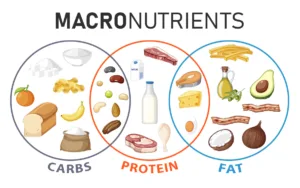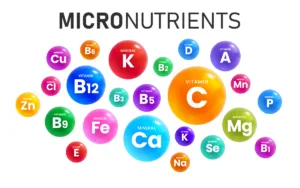Ever wondered what makes up a balanced diet and how it fuels your body? Let us embark on a journey to uncover the essential nutrients that play a pivotal role in maintaining good health. Understanding these nutrients can empower you to make informed choices, ensuring your meals are both nutritious and delicious.
The Building Blocks of a Balanced Diet
A balanced diet provides your body with the right proportions of essential nutrients necessary for optimal function. These nutrients can be categorized into macronutrients and micronutrients.
Macronutrients: The Primary Energy Sources

- Carbohydrates: Often referred to as the body’s main source of energy, carbohydrates are crucial for powering daily activities. They can be classified into:
- Simple Carbohydrates: Found in fruits and dairy products, these are quickly digested, causing a swift rise in blood sugar levels.
- Complex Carbohydrates: Present in whole grains and legumes, they digest slowly, providing sustained energy and helping regulate blood sugar levels.
- Proteins: Essential for building and repairing body tissues, proteins are composed of amino acids, some of which are termed essential because the body cannot produce them. Incorporating a variety of protein sources ensures you obtain all essential amino acids.
- Fats: While often misunderstood, fats are vital for energy storage, protecting organs, and supporting cell growth. They include:
- Saturated Fats: Typically found in animal products and certain oils, these should be consumed in moderation to maintain heart health.
- Unsaturated Fats: Present in plant-based foods like avocados, nuts, and olive oil, these are beneficial for heart health.
Micronutrients: The Essential Supporters

- Vitamins: These organic compounds are crucial for various body functions.
- Fat-Soluble Vitamins: Including vitamins A, D, E, and K, they are stored in the body’s fatty tissues and require dietary fats for absorption.
- Water-Soluble Vitamins: Such as vitamin C and the B-vitamin group, they are not stored in the body and need regular replenishment through diet.
- Minerals: Inorganic elements like calcium, potassium, and iron are essential for processes such as bone formation, nerve function, and oxygen transport.
- Organic Acids:
Organic acids, such as citric acid and malic acid, are naturally occurring compounds in many fruits and vegetables. These acids help maintain pH balance in the body, support energy production, and improve the bioavailability of minerals.
The Role of Fiber and Water
- Dietary Fiber: Found in plant-based foods, fiber aids digestion, helps maintain steady blood sugar levels, and supports heart health.
- Water: Often overlooked, water is vital for nearly every bodily function, including temperature regulation, nutrient transport, and waste elimination.
Navigating Processed Foods
While convenient, processed foods often contain added sugars, unhealthy fats, and sodium, which can be detrimental when consumed in excess. Opting for whole, minimally processed foods ensures a higher intake of nutrients and supports overall health.
Conclusion
Understanding the various types of nutrients and their roles empowers you to craft a balanced diet that supports good health. By focusing on diverse, nutrient-rich foods and being mindful of processed food intake, you provide your body with the essential building blocks it needs to thrive. Remember, every meal is an opportunity to nourish your body – make it count!

